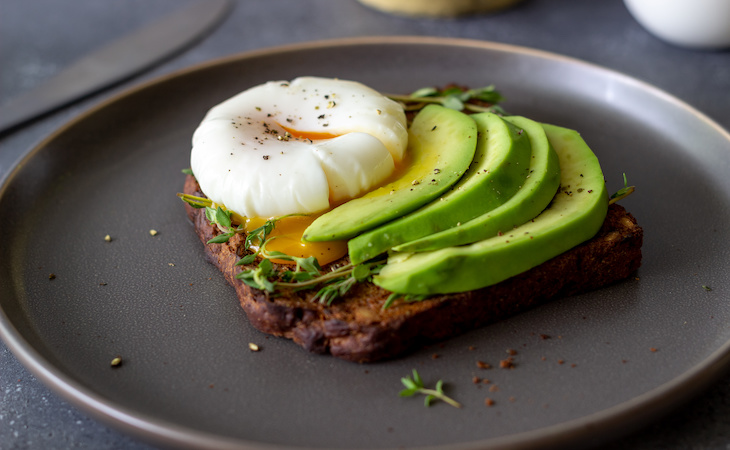If you’re struggling to fall or stay asleep at night, there are a number of factors that might be at play, from the caffeine in your evening tea or spillover stress and anxiety to something you might have yet to consider: poor gut health.
The connection between gut health and sleep
A recent study published in PLoS One found that a healthy gut is associated with better and longer sleep, potentially thanks to communication between your gut bacteria and your brain.
For the study, 26 men provided a fecal sample to characterize their gut microbiome and wore a high-tech watch for 30 days to track numerous sleep metrics including their bedtime, wake-up time, time in bed, total sleep time, how long it took them to fall asleep, and how well they slept throughout the night.
The results revealed that men with diverse microbiomes slept better and longer with fewer wake-ups than those who had less diverse microbiomes. In short, a diverse microbiome seemed to promote healthier sleep.
But what do we actually know about the relationship between gut health and sleep, and how you can support your gut bacteria for high-quality shuteye? Here, a look at the science.
This study is just one example of the nascent field of research looking at the GI tract’s “gut microbiome,” a collection of approximately 100 trillion microorganisms that send messages from your gut to your brain all day long in order to keep your body functioning optimally.
This communication—often referred to as the gut-brain axis—influences mood, emotions, and, according to the most recent research, sleep.
But the relationship between a healthy gut and good sleep goes both ways. When lifestyle factors such as poor sleep and stress disrupt your circadian rhythm (your body’s internal clock), your microbiome might not be as diverse. A diverse microbiome seems to be associated with better sleep habits, and better sleep habits can also help create a more versatile gut microbiome, explains Marvin Singh, MD, integrative gastroenterologist and founder of the Precisione Clinic in Encinitas, Calif.
Related: Are your sleep habits wrecking your metabolism?
Can you improve your gut health for better sleep?
In short, kind of. Research suggests that the greater gut diversity the better, but because your gut bacteria profile is so individualized and ever-changing based on a number of factors, no one is ready to say you can just pop a probiotic supplement (full of “good” gut bacteria) for better sleep.
However, what you eat—and don’t eat—may help boost the diversity of your gut microbiome and, in turn, your overall health and sleep quality. Scientists are just beginning to understand this, but here’s some of what we already know:
- Fill your plate with prebiotics. To support gut health, diversify your diet with foods such as bananas, berries, leafy greens, tomatoes, artichokes, asparagus, garlic, onions, legumes, and whole grains. These foods provide prebiotics, which are fibers that feed your gut bacteria and help build a diverse ecosystem, says Singh.
- Stock up on fermented foods. Pickles, kimchi, and sauerkraut, as well as kefir, miso, and tempeh, are rich in probiotics, beneficial bacteria that can also help directly boost your gut diversity, Singh says. While this isn’t a ticket to better gut health or sleep, probiotics seem to help battle back “bad” bacteria and boost “good” bacteria.
- Keep processed and packaged foods high in sugars, fats, and additives to a minimum. They shift the balance of “good” and “bad” bacteria in your gut for the worse, which in turn could mess with your sleep, says Singh.
- Cut the fake sugar too. Animal studies show alternative sweeteners such as sucralose and aspartame (found in products like Splenda, diet soda, and “sugar-free” packaged foods) can disrupt the balance and diversity of gut bacteria, triggering inflammation, according to studies in Physiology & Behavior and Nature.
- Prioritize your sleep itself. Finally, remember: Because the relationship between your gut health and sleep is circular, simply making sure you’re getting those quality seven to eight hours a night is key. Need a place to start? Consider these trendy treatments, ways to get more deep sleep, or tips for keeping your body clock in tip-top shape.




